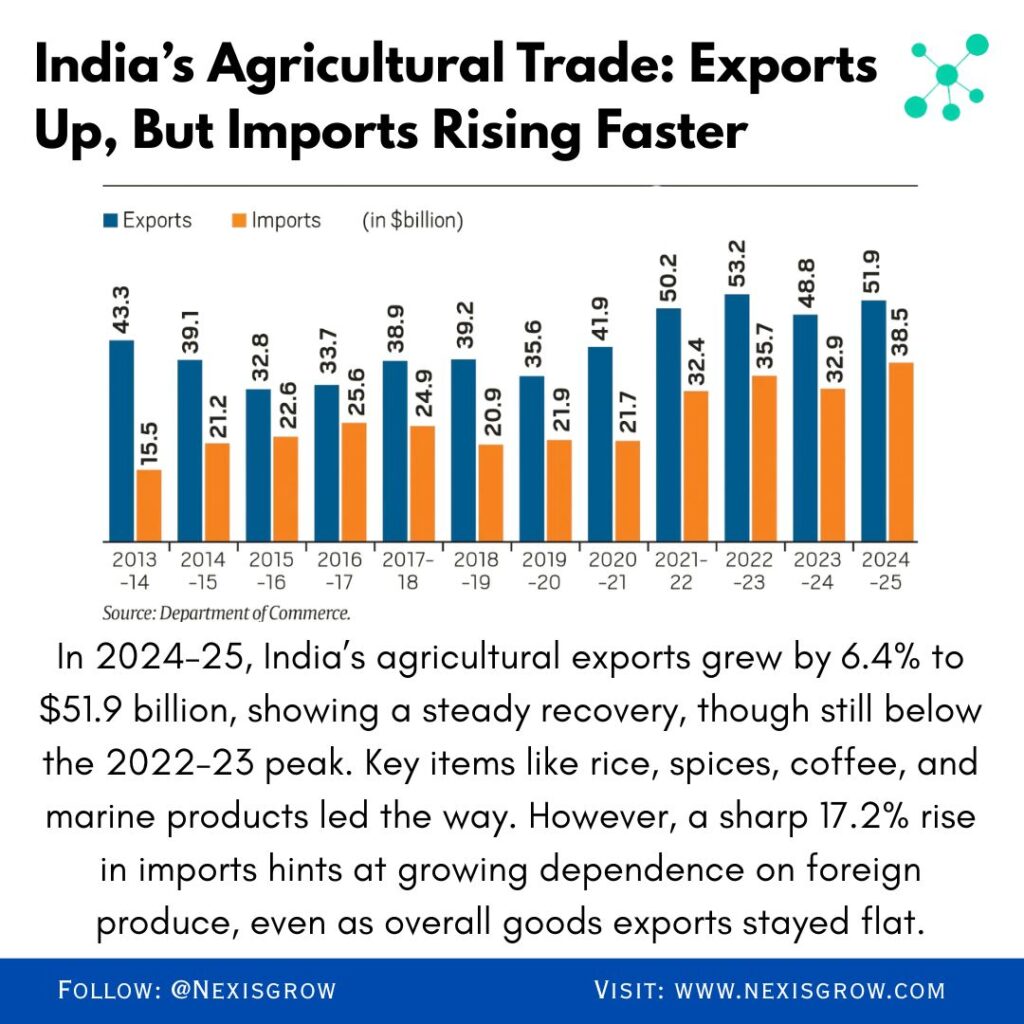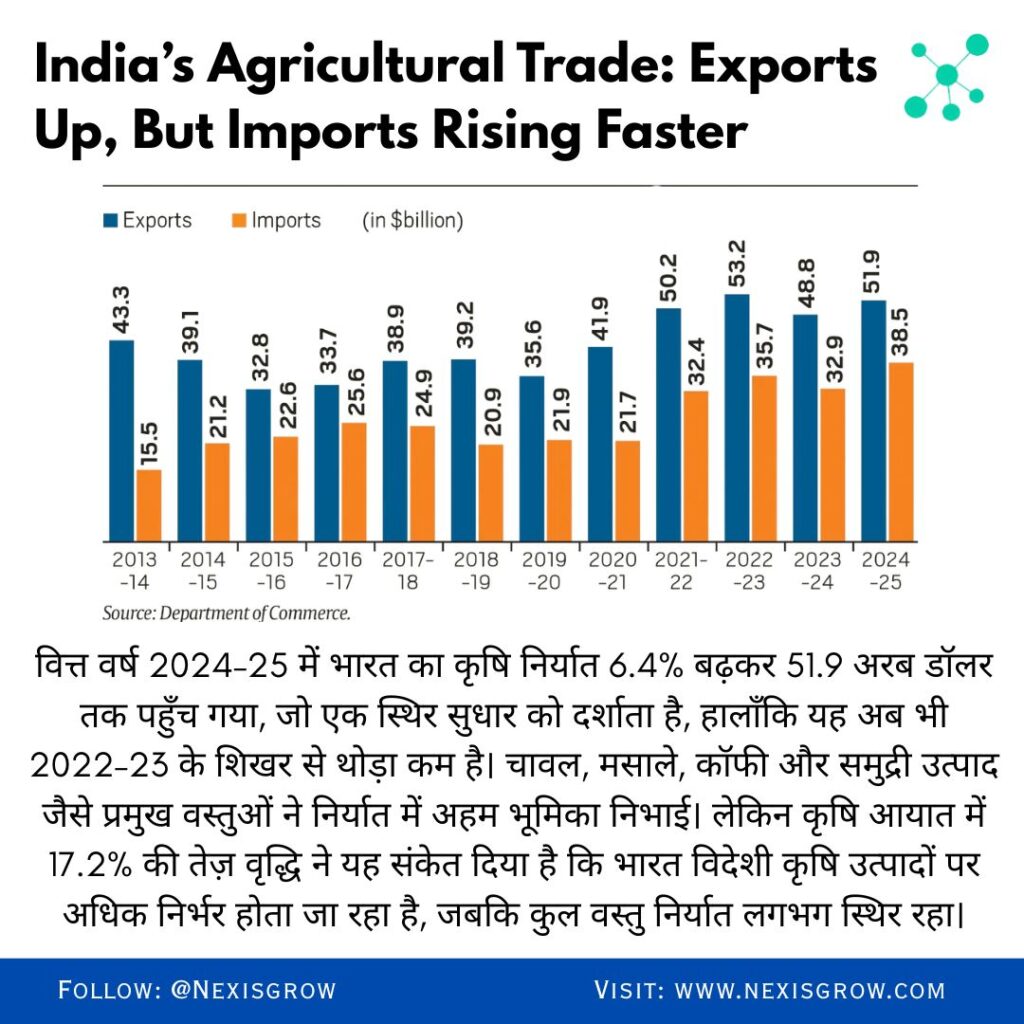Hindi/English
India’s agricultural trade has seen some important changes in recent years. In the financial year 2024–25, agricultural exports went up by 6.4%, touching $51.9 billion. This is quite impressive, especially when compared to the overall goods export growth, which was almost flat at just 0.1%. On the other hand, agricultural imports jumped by 17.2%, showing that we are becoming more dependent on foreign products.
📈 Export Performance: Steady Recovery
Since 2019–20, agricultural exports have been recovering steadily. The highest export value was in 2022–23 at $53.1 billion. Although the current figure of $51.9 billion is slightly lower, it still reflects positive growth. Key export items include marine products, rice, spices, and coffee. Despite a recent fall, marine products continue to be a major export, especially to the US and China.

🌾 Top Export Commodities
Rice continues to be the star performer in agricultural exports. In 2024–25, exports of basmati and non-basmati rice together touched a record $12.5 billion. Other major exports include spices, tobacco, and fruits, which have seen rising demand in international markets. Coffee exports also got a boost due to supply shortages worldwide, caused by bad weather in major producing countries.
⚠️ Import Challenges: Production & Policy Issues
The increase in imports is mainly due to stagnant domestic production of oilseeds and pulses. Farmers are facing problems like low yields and lack of a proper government procurement system. These issues have pushed up the import bill, with vegetable oils and pulses alone crossing $5 billion for the first time.
🌐 Trade Agreements: What Lies Ahead
India is currently negotiating trade deals with the US, EU, and UK. These agreements might reduce tariffs and give our agricultural products better access to international markets. However, the final terms of these deals will play a key role in shaping the future of our agricultural trade.
💹 Falling Trade Surplus
India’s agricultural trade surplus has dropped sharply—from $27.7 billion in 2013–14 to just $13.4 billion in 2024–25. This fall highlights the rising import costs and the various challenges faced by Indian farmers. Balancing exports and imports will be crucial to ensure the long-term sustainability of the agricultural sector.

